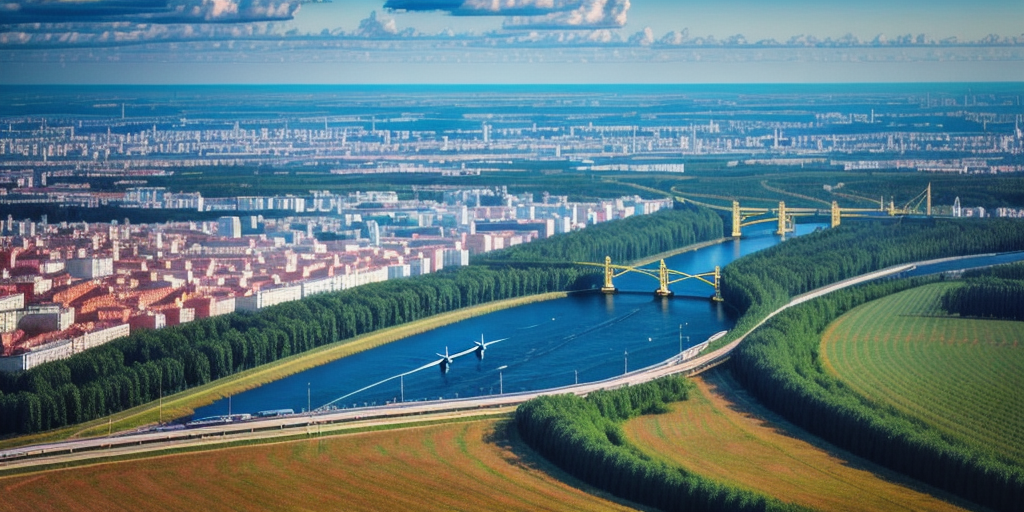
Muscovites’ travel plans disrupted as Ukraine targets airspace with drones
How did your country report this? Share your view in the comments.
Diverging Reports Breakdown
Muscovites’ travel plans disrupted as Ukraine targets airspace with drones
Travel plans thrown into chaos in recent weeks as Ukrainian drones repeatedly disrupt airspace over Russia’s capital. For many Russians, this may be the most tangible sign yet that the conflict has begun to intrude on their everyday lives. The Ukrainian president, Volodymyr Zelenskyy, has long abandoned efforts to persuade ordinary Russians to oppose the war. Instead, he seems focused on making the cost of continued aggression impossible to ignore – not just because of the coffins returning from the frontline, but through growing disruptions to daily life. The tactic seems to be bearing fruit: regular airport shutdowns and missed holidays have become a major talking point among the Russian public – and a growing source of frustration. Russian airports are preparing for the chaos to become a permanent feature of the country’s airports. At Sheremetyevo, staff were filmed last Tuesday handing out mattresses to stranded passengers. Several major international carriers – including Emirates and Turkish Airlines – have reportedly begun adjusting their schedules to account for the frequent airspace shutdowns.
They spent the day – and night – sleeping on the airport’s concrete floor, waiting for updates. It wasn’t until the next morning that they were told their flight had been rescheduled for later in the week.
“We saved up for this trip for a year,” Shevchuk said. “Our hotel and car rental can’t be reimbursed, and we simply can’t reschedule.”
Tens of thousands of passengers like Shevchuk have seen their travel plans thrown into chaos in recent weeks, as Ukrainian drones repeatedly disrupt airspace over Russia’s capital.
View image in fullscreen Frustrated would-be passengers have been left stranded at Moscow’s Sheremetyevo airport. Photograph: Reuters
What began as isolated interruptions have evolved into a systematic Ukrainian campaign, aimed at bringing the war home to ordinary Russians – many of whom have otherwise experienced it only from their television screens.
Their inconvenience is trivial compared with the daily reality faced by Ukrainian civilians, who live under the constant threat of deadly missile and drone attacks. But for many Russians – who have largely remained insulated from the direct impacts of Vladimir Putin’s invasion of Ukraine in 2022 – this may be the most tangible sign yet that the conflict has begun to intrude on their everyday lives.
While few Ukrainian drones make it through the heavily fortified air defences around Moscow, their relative cheapness compared with the chaos they cause makes them an efficient means of targeting Russia’s sense of stability.
The Ukrainian president, Volodymyr Zelenskyy, has long abandoned efforts to persuade ordinary Russians to oppose the war. Instead, Kyiv’s strategy seems focused on making the cost of continued aggression impossible to ignore – not just because of the coffins returning from the frontline, but through growing disruptions to daily life.
Ukrainian officials have not yet formally commented on the tactic, but they have emphasised repeatedly that life in Russia should not remain comfortable for a population that, by and large, continues to support the war.
And the tactic seems to be bearing fruit: regular airport shutdowns and missed holidays have become a major talking point among the Russian public – and a growing source of frustration.
Beyond the anecdotal stories of missed holidays and ruined business trips, there is a very real and mounting economic cost for Russia’s aviation industry, already strained by western sanctions.
During the most severe wave of travel disruption to date, from 6-7 July, airlines across the country cancelled 485 flights and delayed about 1,900 more, according to Russia’s federal air transport agency. More than 43,000 forced ticket refunds were issued, 94,000 passengers were placed in hotels, and more than 350,000 food and drink vouchers were handed out.
“It’s not just a headache. The drones completely disrupt our operations,” said a senior manager at one of Moscow’s main airports, speaking on condition of anonymity. “We can’t go on like this forever,” the manager added.
The plane chaos appears to have caught the attention of Russia’s leadership. Earlier this month, Putin dismissed the country’s transport minister without offering any official explanation. But the risks for Russia in keeping its skies open are stark.
In December last year, 38 people were killed when Russian air defences mistakenly shot down an Azerbaijan Airlines passenger jet that crashed in Kazakhstan, during an attempt to intercept a Ukrainian drone targeting Grozny airport. The incident has triggered an unprecedented diplomatic rift with Azerbaijan.
Russian airports are preparing for the chaos to become a permanent feature. At Sheremetyevo, the country’s busiest airport, staff were filmed last Tuesday handing out mattresses to stranded passengers.
Several major international carriers that continue to operate flights to Russia – including Turkish Airlines and Emirates – have reportedly begun adjusting their schedules to account for the increasingly frequent airspace shutdowns.
For Shevchuk, the upheaval did little to shake his support for Russia’s war in Ukraine. “The sooner we put an end to Ukraine, the better,” he said.
When asked whether the experience had made him reflect on the daily suffering and bombardment faced by Ukrainian civilians, he shrugged. “That’s not my problem. Why should our lives be affected by this?”
